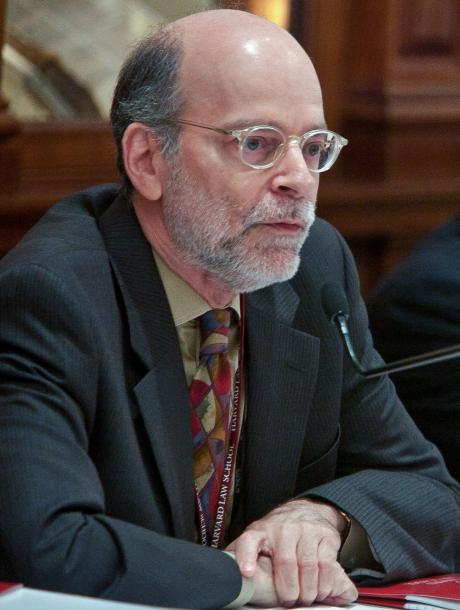Political forces shaping CSR
Issue № 5 | July 2025
Bentornati, Welcome back!
In last month’s issue, we explored how ESG is no longer a monolithic movement but a fragmented space of diverging investor expectations, cultural norms, and regulatory standards. Our interview with Enrichetta Ravina highlighted how some investors are doubling down on ESG integration while others are pulling back—often under pressure from politicised stakeholders.
This month we continue exploring the instability surrounding corporate sustainability, suspended between progress and pushback. We turn to the political roots of that tension, drawing on a forthcoming ECGI working paper 'Corporate Social Responsibility and Its Political Economy' by Professor Mark Roe (Harvard University).
A brief note on terminology is useful. We employ the term CSR here, being more in line with Professor Roe's analysis – preferring it to ESG which, in its still unresolved ambiguity, may be regarded as a set of measurements of corporate sustainability.
As Professor Roe notes, “Government can be broken in two ways: it cannot act, or it chooses not to.” In both cases, pressure shifts to companies. Yet while CSR supporters have often relied on diffuse investor support and moral framing, CSR opponents have become increasingly well-organised and strategic—leveraging local politics, state pension funds, and legal levers to constrain corporate action.
The result is a political pincer movement in which governments are reluctant to legislate and activists are determined to prevent companies from acting in their place. From state pension fund divestments to SEC rollbacks and public disapproval campaigns, the anti-CSR movement is no longer a fringe reaction.
If CSR progress is desirable, how might it be effectively pursued? Professor Roe identifies two broad strategies: direct and indirect. The direct route lies in government regulation—carbon taxes, fair wages, workplace safety, anti-discrimination rules, product standards, and the like. Political interests and segments of public opinion frequently stand in opposition to these and this deadlock shifts the focus toward the indirect route—namely, corporate boardrooms, particularly those of large public companies. There is growing pressure for corporations to move beyond a sole focus on profit-making and instead internalize externalities: reducing pollution, upholding climate and human rights commitments, and prioritizing stakeholder wellbeing. However, research suggests that many CSR pledges are more rhetorical than substantive, often amounting to box-ticking exercises rather than meaningful behavioural changes.
So where does this leave us? Corporations are also “political (artificial) animals” and the same political forces that resist government regulation also shape and often limit corporate CSR initiatives. For those seeking to move the agenda forward, building strong coalitions could be essential. As Puchniak and Varottil suggest in their work on green shareholder activism, acting in concert may be a crucial strategy.
We invite you to read the full interview with Professor Roe below. As always, we welcome your thoughts and feedback. We’ll be taking a short break in August and we wish you a restful and enjoyable summer.
Best, ciao,
~ Riccardo

Riccardo Rao is a PhD candidate in business law at the Universities of Udine and Trieste, Italy. His PhD research focuses on benefit corporations, conducting comparative analysis across Europe and North America.
✉️ Please feel free to get in touch, share your thoughts and let us know how we're doing, email future@ecgi.org.
Featured Interview


ESG Evolution & Backlash Timeline
Explore our timeline tracing major ESG milestones from 2015 to 2025 across key jurisdictions, including the U.S., EU, China, and Canada.
More from ECGI
Working papers:
📄 Accountability For Flawed Corporate Culture (Jennifer G. Hill and Roy Shapira, Jul 2025)
📄 Demand-driven Corporate Social Responsibility: Symbolic versus Substantive Change after Environmental Disasters (Juan M. García Lara, Beatriz Garcia Osma, Irina Gazizova and Akram Khalilov, May 2025)
📄 Corporate Social Responsibility Committee: International Evidence (Jenny Chu, Xi Li and Yuxia (Sarine) Zou. Jun 2024)
📄 The Singular Role of Public Pension Funds in Corporate Governance (Jill Fisch and Jeff Schwartz, May 2025)
📄 Polarization, Purpose and Profit (Daniel Ferreira and Radoslawa Nikolowa, Mar 2024)
📄 Success, Law and ESG (Colin Mayer, Aug 2024)
📄 How Twitter Pushed Stakeholders Under The Bus (Lucian A. Bebchuk, Kobi Kastiel and Anna Toniolo, Apr 2023)
📄 Corporate Social Responsibility through Shareholder Governance (Robert P. Bartlett and Ryan Bubb, Jul 2023)
📄 The Making and Meaning of ESG (Elizabeth Pollman, Sep 2022)
📄 Stakeholder Capitalism in the Time of COVID (Lucian A. Bebchuk, Kobi Kastiel and Roberto Tallarita, Dec 2022)
📄 Corporate Purpose and Corporate Competition (Mark Roe, Aug 2021)
ECGI Blog:
📘 When the State Shapes the Vote (Todd Gormley, Manish Jha and Meng Wang, Jun 2025)
📘 The Singular Role of Public Pension Funds in Corporate Governance (Jill Fisch and Jeff Schwartz, May 2025)
📘 Elements of a theory of the responsible firm (A review, Dec 2024)
📘 Three Conceptions of Capitalism (Lucian Bebchuk, Oct 2023)
More from the Blog...
Videos:
Public pension funds in corporate governance (May 2025)
Wallenberg Lecture | “Whose Corporate Governance?” (Oct 2024)
Does Sustainable Investing Work? (Jun2024 - present)
Wallenberg Lecture | “Three Conceptions of Capitalism” (Oct 2023)
More from the Videos...
